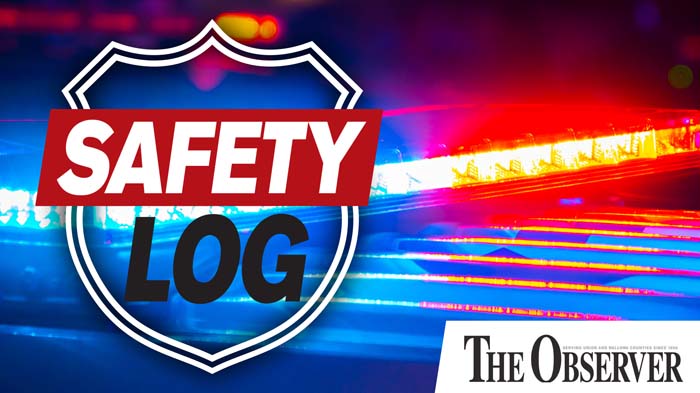Farm Credit System shrugs off credit rating downgrade
Published 11:00 am Saturday, August 12, 2023
SALEM — A downgrade of the Farm Credit System’s credit rating hasn’t negatively affected the network’s operations, though some experts say it could lead to more expensive loans for farmers.
The Fitch rating service recently reduced the Farm Credit System’s long-term debt credit rating — which gauges its ability to meet financial obligations — from the highest level, AAA, to the slightly lower AA+.
The AA+ rating means Fitch still thinks the Farm Credit System has a “very low” risk of defaulting on its long-term debt, but the downgrade does indicate decreased confidence in its financial resilience.
The credit rating agency’s demerit hasn’t alarmed federal regulators who oversee the network, which “remains safe and sound,” according to the Farm Credit Administration.
“As a regulator of the system, we supervise and oversee its institutions on a regular and ongoing basis,” an FCA spokesperson said. “We are confident that the system remains well positioned to continue meeting the important public mission provided by Congress.”
U.S. rating downgraded
Fitch’s decision wasn’t based on the financial condition of the Farm Credit System itself, but rather on its downgrade of the “U.S. sovereign,” or the federal government, primarily due to its “erosion of governance.”
While the federal government doesn’t directly guarantee the Farm Credit System’s debt, Fitch believes it benefits from “implicit government support” because the network was created by Congress.
The U.S. government’s debt burden is “high and growing” while its fiscal management has deteriorated over recent decades as “manifested in repeated debt limit standoffs and last-minute resolutions,” according to Fitch.
In 2011, the Standard & Poor’s rating service previously downgraded the federal government’s debt rating, along with the Farm Credit System’s. The federal government and FCS continue to be rated at the highest level by Moody’s, the third major credit rating agency.
The Farm Credit Council, a trade association representing system lenders, wasn’t surprised by Fitch’s decision, which it’d expected to come after the U.S. sovereign’s downgrade.
“Essentially, our credit is never going to be rated higher than the U.S. government’s. If theirs goes down, ours goes down,” said Mark Hayes, the council’s vice president of communications.
Financially strong lenders
Farm Credit lenders remain well capitalized and financially strong, so the downgrade hasn’t discouraged investors from buying the system’s debt, he said.
“The Farm Credit System has not had any trouble issuing debt to meet the needs of our customers,” Hayes said. “We have not experienced any disruption in the capital markets or our ability to issue bonds.”
The system’s four banks and 59 affiliated associations earned $3.5 billion in net income during the first half of 2023, roughly the same as at this point last year, according the Federal Farm Credit Banks Funding Corporation, which raises money for the network.
At $71 billion, the system’s capital — a measure of net worth — has increased from $69 billion in mid-2022, according to FFCB.
Meanwhile, its provisions for loan losses increased from $1 million to $407 million, partly due to “deteriorating macroeconomic conditions that may affect the agribusiness and rural infrastructure sectors,” according to FFCB. The network charged off $73 million in bad debt in the first half of 2023, up from $32 million in mid-2022.
Future turbulence?
Though the Farm Credit System remains stable with a minimal default risk, some experts say the downgrade could portend future turbulence.
The system’s downgrade is concerning in the broader context of the federal government’s financial stability, said Jim Budzynski, managing principal of the Macrogain Partners economic consultancy firm.
With the U.S. government’s “massive” debt and “war-time” budget deficit, the downgrade was warranted, Budzynski said.
Interest rates are likely to go up unless there’s an economic crisis, which remains an “ominous” possibility given trends in the market for federal government bonds, he said.
“Farmers and ranchers will not only face increasing challenges due to the rate increases, but the banks — many with a big ag focus — are pulling back on lending and raising credit standards,” he said.
Combined with reduced profits for commodity crops, the situation could devolve into another farm crisis, though that’s mitigated by the possibility of reduced foreign competition in some crop sectors, he said.
‘Canary in the coal mine’
Fitch could be the “canary in the coal mine” if the other two credit rating agencies follow with their own downgrades of the Farm Credit System’s rating, said Bert Ely, a banking policy analyst who tracks the network.
Such downgrades could force the network’s lender to borrow money at a higher interest rate, potentially filtering through to the rates charged to farm borrowers, he said. “The effect will be their debt will be a little more expensive.”





